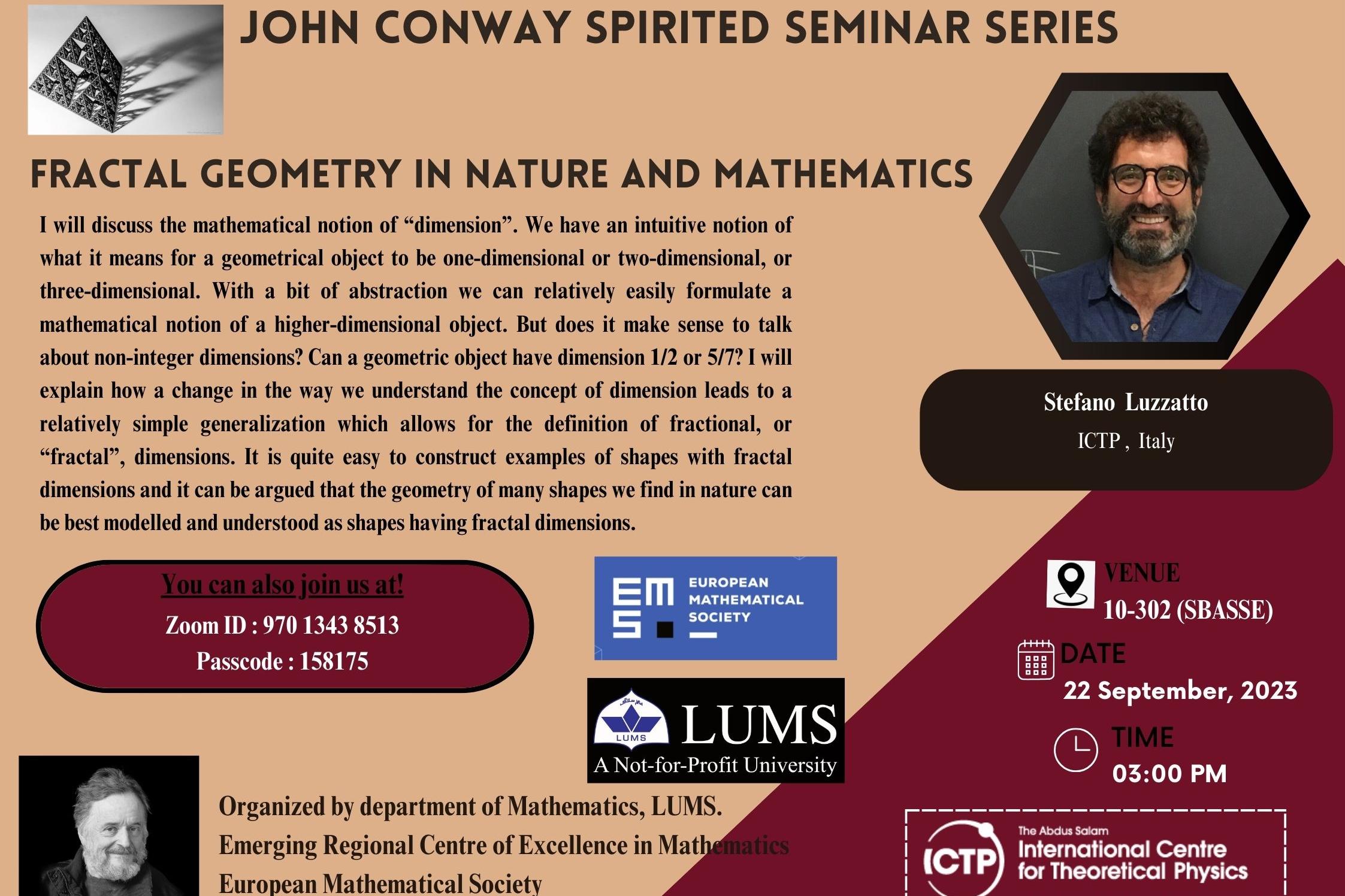
Fractal Geometry in Nature and Mathematics
Stefeno Luzzatto received his PhD in Dynamical Systems from the International School for Advanced Studies (SISSA) in Trieste and the Instituto de Matematica Pura e Aplicada (IMPA) in Rio de Janeiro, under the supervision of Marcelo Viana an Jacob Palis in 1995. He was a postdoc at the Mathematics Institute at Warwick University from 1995 to 1999 and a lecturer, senior lecturer and reader from 2000 at Imperial College London where he co-founded the Dynamical Systems group DynamIC. In 2009 he had the privilege of moving to the Abdus Salam International Centre for Theoretical Physics (ICTP) in Trieste where he coordinated the activities in Dynamical Systems and Ergodic Theory within the Mathematics Section.
His research is in the area of Dynamical Systems and Ergodic Theory or more specifically in the "Stochastic properties of deterministic dynamical systems". This has to do with the fact that many dynamical systems are "chaotic" in the sense that their short-term behavior is quite unpredictable but statistically well behaved, which allows us to have fairly reliable long-term statistical information and predictions.
He is involved in the organization of many schools and workshop both in Trieste and elsewhere, including in developing countries, and of supporting mathematicians working with few resources and difficult conditions. Recently, as a Scientific Coordinator of the International Mathematics Master (IMM) he was instrumental in the launch of first pilot project in Lahore, Pakistan.
About the John Conway Spirited Seminar Series: John Conway Spirited Seminar series was started in 2021 by the Department of Mathematics at Syed Babar Ali School of Science and Engineering-LUMS, Pakistan. These seminars allow mathematicians from all over the World to indulge in productive discussions on recently evolved theories, expositions, and research. These seminars are purposefully kept online (through Zoom) to avoid the logistics limitations of inviting a speaker from the mathematically developed World and provide a latitude for researchers and students to benefit from these seminars. Almost all the talks are recorded with the speaker's prior consent, and these recorded talks are available on the website. Stay connected with recent development through seminars is highly important for cultivating of effective ideas. Though John Conway never visited Pakistan, it is an endeavor to live his spirited enthusiasm for promoting mathematics. A humble tribute to his grand legacy and spirited attitude to promoting mathematical discussions. We invite all mathematicians, young researchers, and students to these seminars.

